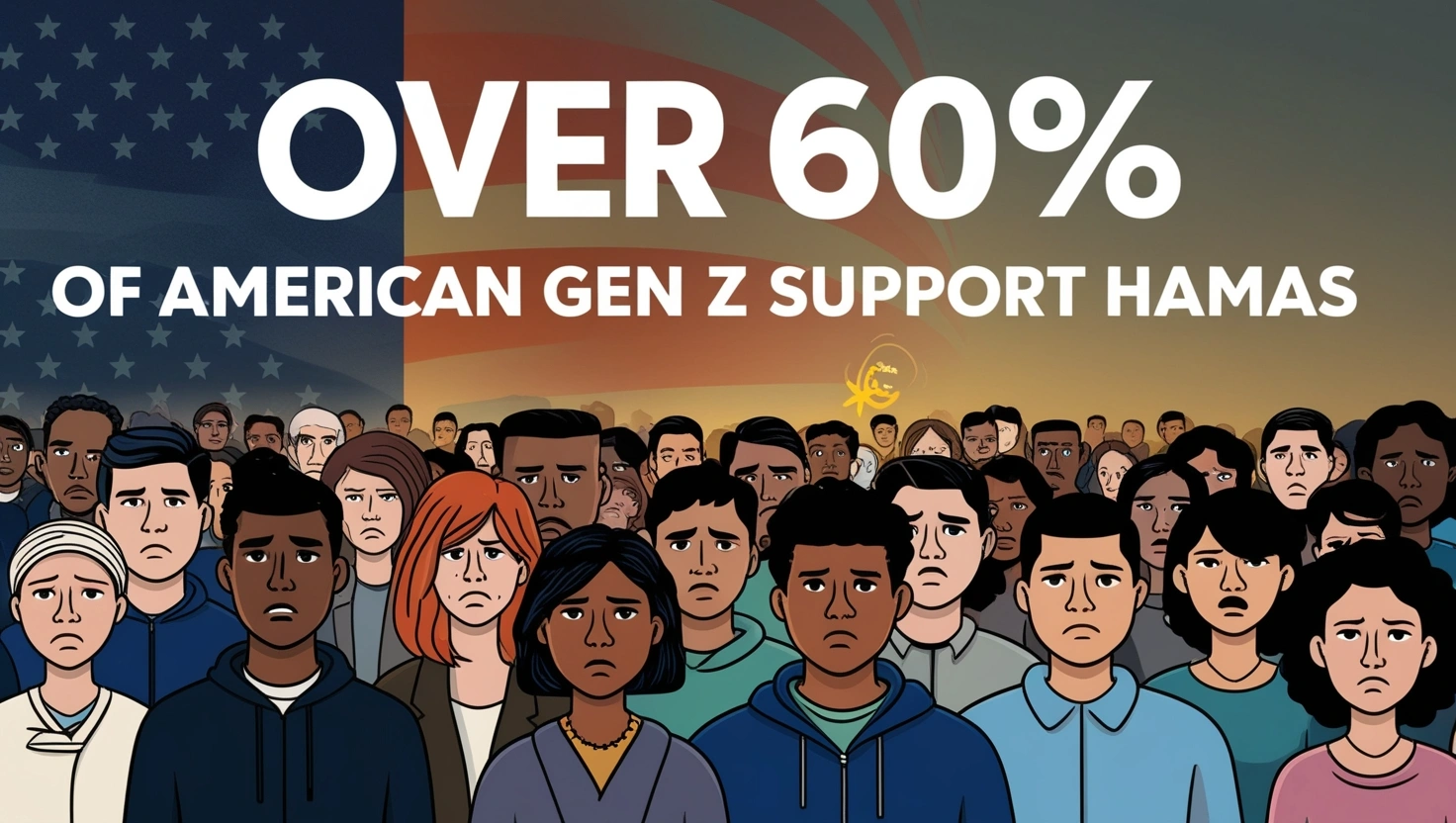Gen Z’s Stance on Israel-Hamas Conflict Highlights Generational Divide 📰
What the Poll Says 📊
An August 20–21, 2025, Harvard/Harris online survey of 2,025 registered voters revealed that 60% of voters aged 18–24 support Hamas over Israel when asked which side they align with in the Israel-Hamas conflict. In contrast, support for Israel increases with age: 65% (25–34), 70% (35–44), 74% (45–54), 84% (55–64), and 89% (65+). This stark generational divide underscores differing perspectives across age groups. Nationally, about three-quarters of voters back Israel, while one-quarter support Hamas.
Support by Age Group 📈
| Age Group | Support Hamas | Support Israel |
|---|---|---|
| 18–24 | 60% | 40% |
| 25–34 | 35% | 65% |
| 35–44 | 30% | 70% |
| 45–54 | 26% | 74% |
| 55–64 | 16% | 84% |
| 65+ | 11% | 89% |
Why Gen Z Skews Differently 🌍
Younger voters often view criticism of Israel through a human rights lens rather than as antisemitism, with many acknowledging severe humanitarian suffering in Gaza. The Harvard/Harris poll shows voters are evenly split on whether Israel is committing genocide in Gaza, a perspective that resonates more with younger respondents and likely influences their alignment. Despite this, most voters overall disapprove of Hamas’s actions, highlighting a complex moral landscape across age groups.
Bar Graph: Support for Hamas vs. Israel by Age 🎨
18–24
25–34
35–44
Red: Hamas | Blue: Israel
Generational Divide in Context 🕰️
Multiple sources report that about six in ten Gen Z Americans favor Hamas over Israel, pointing to a consistent narrative of age-based opinion gaps. Broader surveys, like a Pew study, show a rise in unfavorable opinions of Israel since 2022, providing context for shifting sentiments among younger cohorts. Changing media environments and moral framing around Gaza appear to influence younger Americans differently than older voters.
Campus Activism and Political Spillover 🎤
The 2024–2025 campus protest wave amplified Gaza’s humanitarian crisis through student-led social media campaigns. These efforts, emphasizing civilian suffering, align with the Gen Z attitudinal shift in the Harvard/Harris poll. This dynamic has pressured university administrators, local officials, and national political debates, prompting strategists to address younger voters’ priorities on Gaza and U.S. policy.
What It Means Now ⚖️
The generational divide complicates coalition-building, as parties balance older voters’ pro-Israel stance with younger voters’ focus on Gaza’s humanitarian crisis. This split could shape debates on ceasefires, hostage deals, and aid conditionality. Social media and decentralized sources continue to influence Gen Z, contrasting with traditional outlets favored by older demographics.
Methodological Notes and Cautions 📋
The Harvard/Harris poll, conducted online with 2,025 registered voters, has a margin of error of ±2.2 percentage points. Subgroup estimates, like Gen Z’s 60% support for Hamas, should be interpreted cautiously. Consistency across sources suggests a real generational pattern, but replication with other surveys is key to validating trends.
Frequently Asked Questions ❓
Why do over 60% of Gen Z Americans support Hamas over Israel?
Many younger voters prioritize humanitarian concerns in Gaza and view criticism of Israel as rights-based advocacy rather than antisemitism, as reflected in the Harvard/Harris poll and other research.
Does the poll mean most Americans support Hamas?
No. While 60% of Gen Z (18–24) favor Hamas, overall, about three-quarters of U.S. voters back Israel.
How reliable is the 60% Gen Z figure?
The figure comes from a Harvard/Harris survey of 2,025 registered voters with a ±2.2% margin of error. It should be contextualized with other surveys for accuracy.
What broader trends does this reflect?
Recent data show cooling U.S. views of Israel and lower confidence in leadership, with media shifts shaping younger voters’ outlooks.
What are the policy implications?
The divide influences debates on ceasefires, hostage agreements, and aid, reshaping campaign strategies for younger voters.
🌐 Explore More on Global Market Today
Dive deeper into the latest updates, insights, and expert analysis across our most popular categories.
Stay informed on business, economy, AI, and more – all in one place.
📈 Market
💼 Business
🏛️ Politics
🤖 Artificial Intelligence
🔧 Technology
₿ Cryptocurrency
🌍 Economy
💰 Personal Finance
⚡ Fintech Tools
Hindi Version
